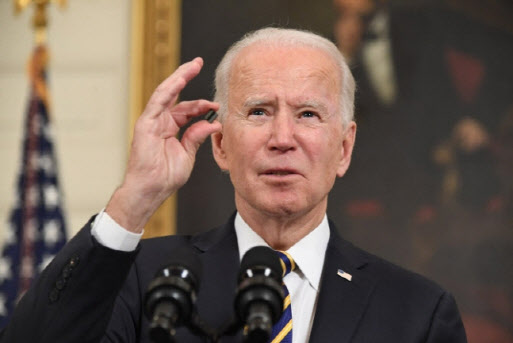|
The Bank of Korea announced on the 14th in a report on “Overseas Economic Focus: Recent Overseas Economy Major Issues”, “The new government of Biden’s supply chain diversification and Made in all of America (Made in all of America) promises to be made in earnest. In the midst of being promoted, it said that it is expected to actively demand cooperation from allies, including Korea.
Since taking office, President Biden has been tightening the reins in the trade war with China. On the 24th of last month, it signed an administrative order ordering the inspection of the supply chain for four key items, including semiconductors, electric vehicle batteries, rare earths, and pharmaceuticals. The U.S. government will first inspect the supply chain for the four major items for the next 100 days, while also covering measures to strengthen mid- to long-term supply chains for six strategically important industries (defense, health, information and communication technology, transportation, energy, and food). I plan to review.
|
According to the BOK report and foreign media such as Bloomberg, the Biden administration is expected to continue to check China through various policy measures before it even announces the results of the inspection of the supply chain for the four items. In addition to restricting the import of some items, it is expected to use measures such as support for vocational education for workers, financial support for companies, and preferential treatment for US-made products in government procurement contracts.
“As the US continued to suffer from shortages in supply of major items such as pharmaceuticals and semiconductors after the Corona 19 pandemic, a bipartisan consensus was formed on the need for government-level responses.” In the process of reorganizing ), it is expected to actively demand cooperation from allies,” he said.
President Biden internally advocated a policy of inclusion of the people of’Made in all of America’ (made in the United States by Americans), and externally, he strengthened cooperation with his allies and became anti-China. ) By creating solidarity, China is being held in check in the fields of trade and diplomacy and security.
With the’Quad’, which includes four countries from the United States, Japan, Australia, and India, ahead of the first video summit on the 12th, it is expected that China’s countermeasures will be more concrete.
The four major items that President Biden ordered to review the supply chain are those that the United States is struggling with stable supply and demand. Of these, semiconductor chips and vehicle batteries are also Korea’s flagship export products.
In the case of semiconductors, concerns over the supply chain in the US have emerged due to the shortage of semiconductors for vehicles and intensifying outsourcing of production. The U.S. share of global semiconductor production has shrunk from 37% in 1990 to 12% in 2020. During January and February, major automakers in the US cut production by more than 20% due to a shortage of semiconductor supplies.
The battery industry, which is a key item, is also growing rapidly thanks to the growing demand for electric vehicles, but East Asian companies dominate most of the global market share. China’s CATL (25%), Korea’s LG Chem (23%), Japan’s Panasonic (18%), China’s BYD (7%), and so on, are particularly dominant. According to the market research firm SNE Research, the total amount of electric vehicle battery energy registered in the world in January was 13.7 GWh (gigawatt-hour), nearly doubled from the same period last year. In particular, the Chinese market expanded more than three times, leading the market growth.
Rare earth, a source material for the high-tech and green industries, is also increasing in recent years, increasing 15.8% year-on-year to 38,000 tons of production in the United States last year, but still depends on China for a significant portion of its demand. According to a survey by the U.S. Geological Survey, the dependence of U.S. rare earth imports on the public is estimated to be as high as 80%.
In addition, in the process of responding to Corona 19, the U.S. was exposed to supply chain vulnerabilities in essential medical supplies, including personal protective equipment (gloves, masks, gowns, etc.). Medical supplies accounted for only 0.8% (US$340 million) of the total US product balance deficit in January last year, but increased more than tenfold to 7.7% (US$39.1 billion) in June.
Biden’s administration is expected to procure rare earths from Australia, Latin America, semiconductors from Korea, Japan, Taiwan, India, and batteries from allies such as Korea and Japan. In this regard, the positive outlook that Korea, which is competing with China, such as semiconductors and vehicle batteries, can enjoy reflective profits, and negative views that encouraging production in the US could cause damage to Korean companies.


